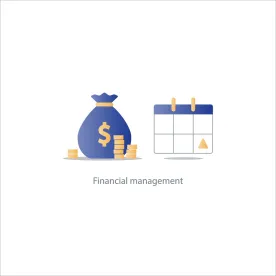The CFPB has issued a new report, “Complaint snapshot: Debt collection,” which provides complaint data as of April 1, 2018. The report represents the CFPB’s first complaint report since Mick Mulvaney was appointed Acting Director. The CFPB’s last regular monthly complaint report was issued in May 2017 and provided complaint data as of April 1, 2017. (Subsequent complaint reports issued prior to former Director Cordray’s departure were “special edition” reports.)
The new report is different from prior monthly complaint reports in several significant respects:
-
While the new report includes overall complaint volume information by product and state that was previously part of the CFPB’s monthly complaint reports, it does not include complaint volume information by company (i.e. the “top 10 most-complained about companies.”)
-
It does not highlight complaints received in a particular state as did prior monthly reports.
-
It provides context for certain complaint data. More specifically, as described below, the new report provides context for the complaint categories showing the greatest percentage changes over the three month periods compared in the report and for the debt collection data highlighted in the report. (In the RFIseeking comment on potential changes to the CFPB’s practices for the public reporting of consumer complaint information, the CFPB has asked for comment on whether it should change the amount of context it provides for complaint information, particularly with regard to product or service market share and company size.)
Also noteworthy is that the new report was not accompanied by a press release or blog containing editorial spin about the report information. Rather, the blog postaccompanying the new report provides an objective overview of the report information.
General findings include the following:
-
As of April 1, 2018, the CFPB handled approximately 1,492,600 complaints nationally, including approximately 30,300 complaints in March 2018.
-
Credit reporting complaints and debt collection complaints represented, respectively, approximately 37 and 27 percent of complaints submitted in March 2018.
-
Credit reporting, debt collection, and mortgage complaints collectively represented about 74 percent of the complaints submitted in March 2018.
-
Money transfer or service and virtual currency complaints showed the greatest percentage increase from January-March 2017 (352 complaints) to January-March 2018 (1,000 complaints), representing an increase of approximately 184 percent. The CFPB comments that the increase was “driven by a spike related to virtual currency” and that in the complaints submitted from January-March 2018 “consumers described issues with the availability of funds held at virtual currency exchanges during periods of price volatility for the most active virtual currencies.”
-
Credit reporting complaints showed the second greatest percentage increase from January-March 2017 (4,848 complaints) to January-March 2018 (11,107 complaints), representing an increase of approximately 129 percent. The CFPB comments that improvements to its complaint submission process in April 2017 allowed consumers “to submit consumer reporting complaints about concerns they are having with data furnishers that supply consumer information to consumer reporting agencies, contributing to this increase in [credit reporting] complaints.”
-
Student loan complaints showed the greatest percentage decrease from January-March 2017 (monthly average of 3,273 complaints) to January-March 2018 (monthly average of 974 complaints), representing a decline of approximately 70 percent. The CFPB comments that the decline “is likely because student loan complaint data was elevated in 2017 following the Bureau’s enforcement action against a student loan servicer.”
Findings regarding debt collection complaints include the following:
-
The CFPB has received approximately 400,500 debt collection complaints since July 21, 2011, representing 27 percent of all complaints.
-
The CFPB has referred approximately 40 percent of the debt collection complaints it has received to other regulators. The CFPB states that it typically makes such referrals when a complaint is about a first-party collector, where the debt did not arise from a financial product or service, or when the company complained about does not appear to be a third-party collector of a financial product or service-related debt.
-
The CFPB comments that “debt collection complaints submitted by consumers can be more meaningful when considered in context with other data, such as the number of consumers who have an account in collection.” The CFPB observes that according to its most recent annual FDCPA report, “millions of Americans” are affected by the debt collection industry, according to its Consumer Credit Panel, “about 26 percent of consumers with a credit file have a third-party collection tradeline listed.”
-
The most common concerns identified by consumers were attempts to collect a debt not owed (39 percent), written notification about debt (17 percent), and communication tactics (17 percent).
-
Based on its review of the narrative descriptions in complaints, the CFPB observed that:
-
Consumers complained about debts appearing on their credit reports without prior written notice of the existence of the debt and not receiving additional information requested about such debts from companies.
-
Consumers complained about communication tactics, such as frequent and repeated calls and calls before 8 am and after 9 pm and calls after having requested no further telephone contact about the debt.
-
The CFPB has indicated that it intends to move forward on debt collection rulemaking. Its Spring 2018 rulemaking agenda states that the Bureau “is preparing a proposed rule focused on FDCPA collectors that may address such issues as communication practices and consumer disclosures” and estimates the issuance of a NPRM in March 2019.



 />i
/>i


